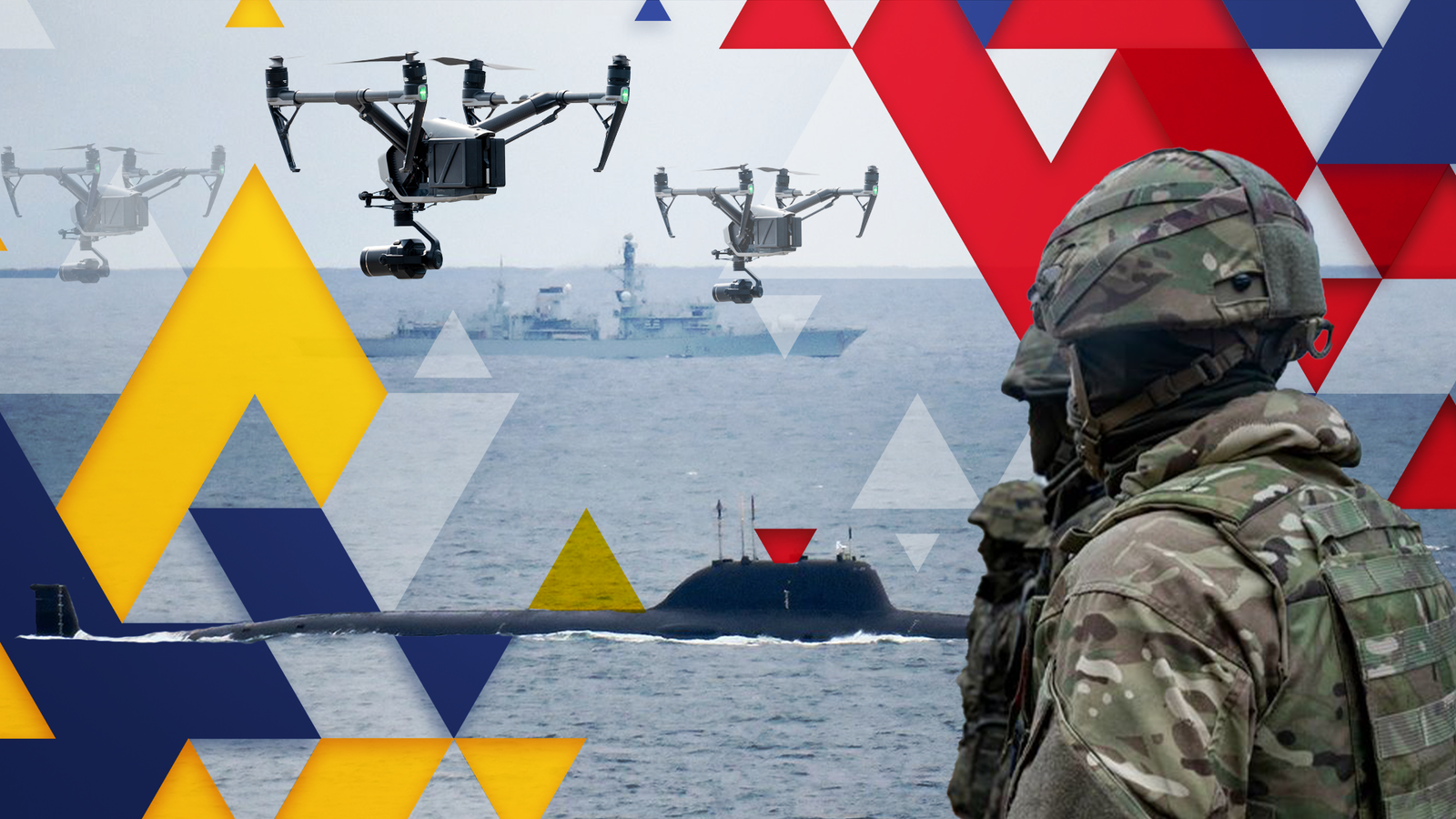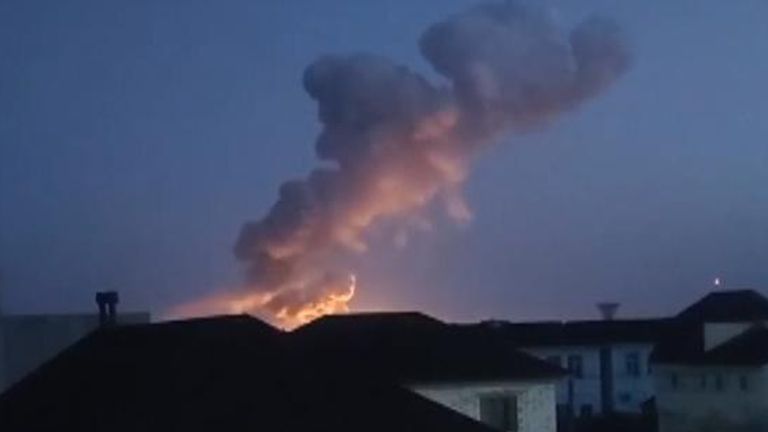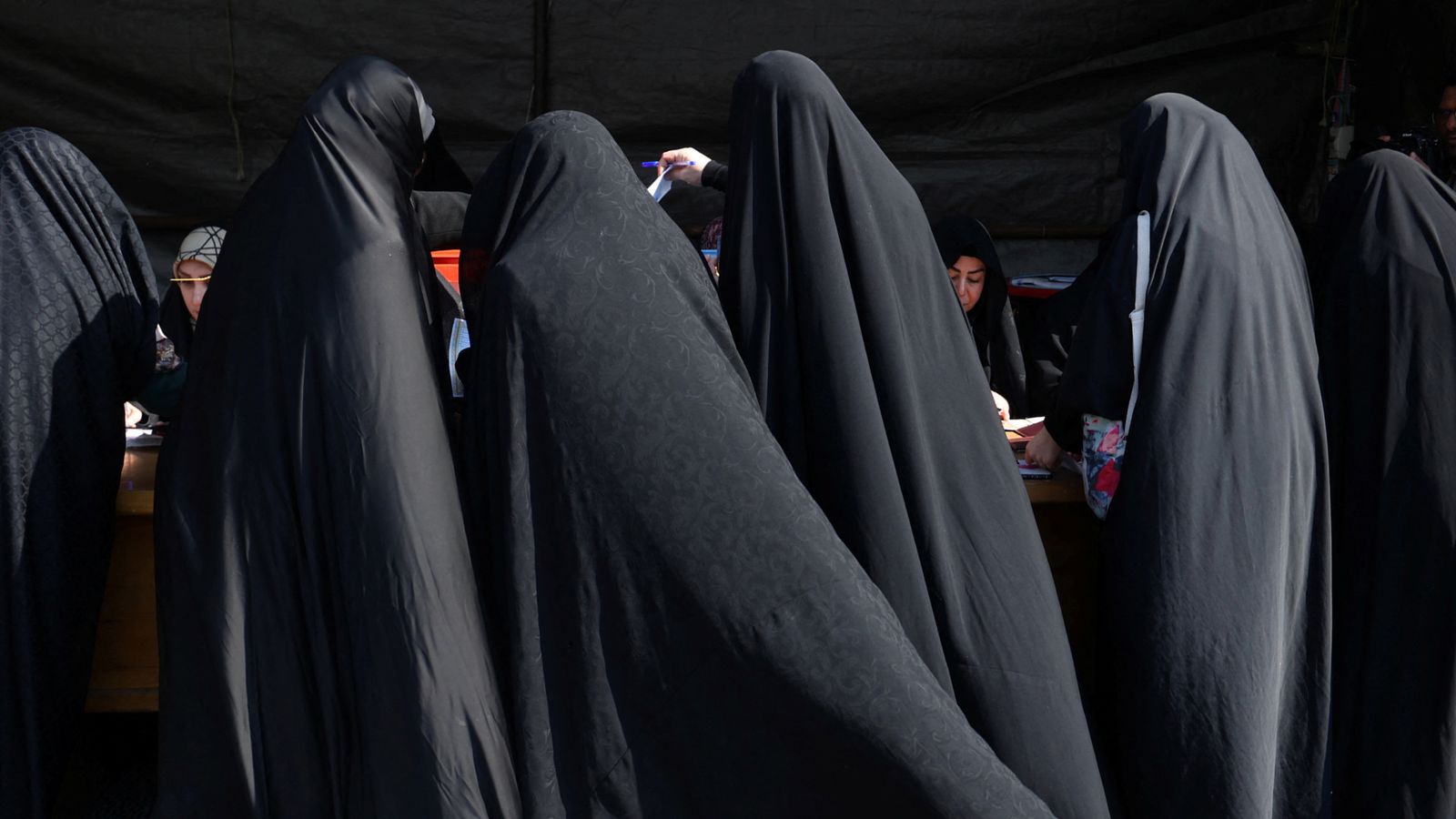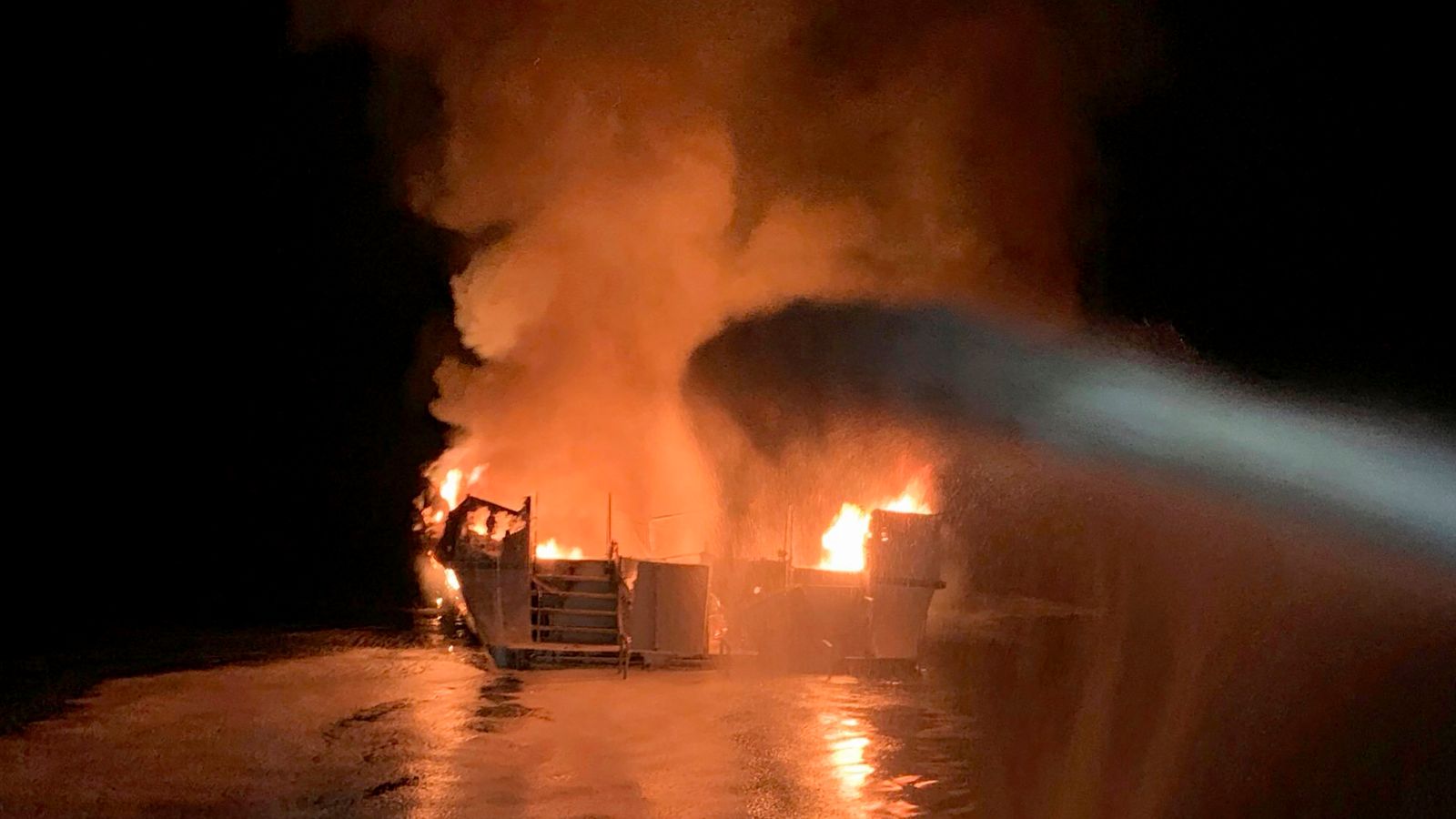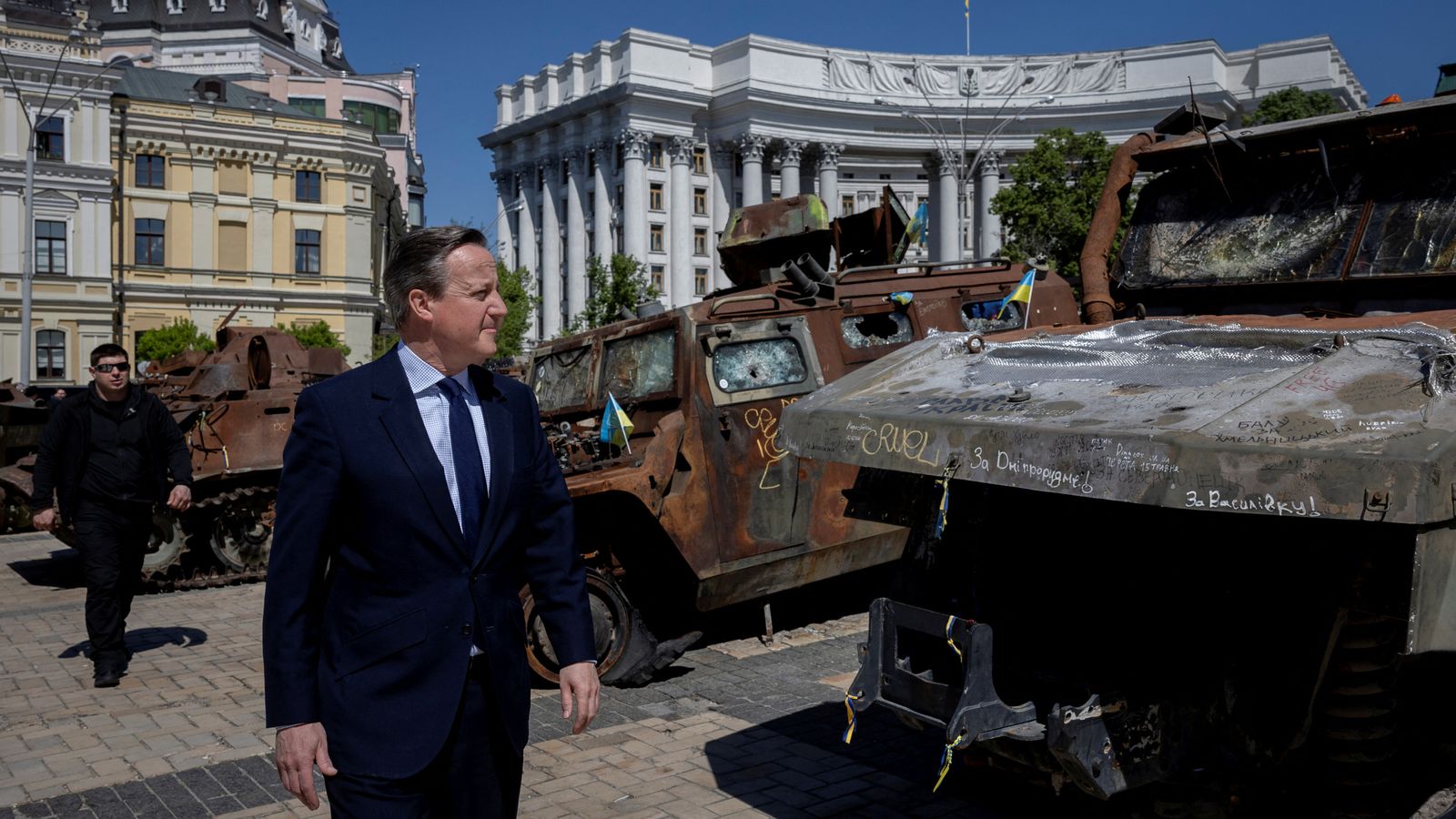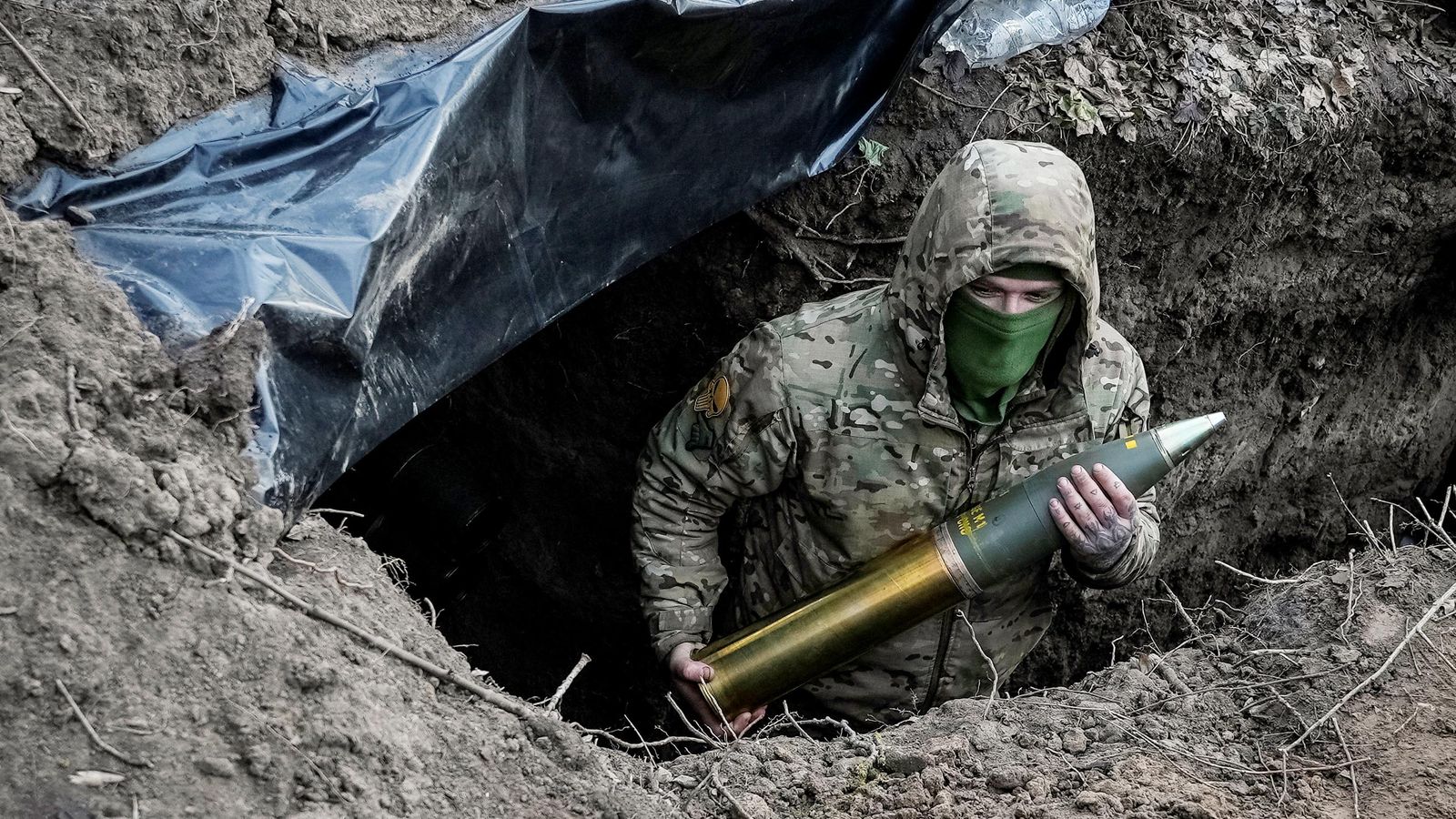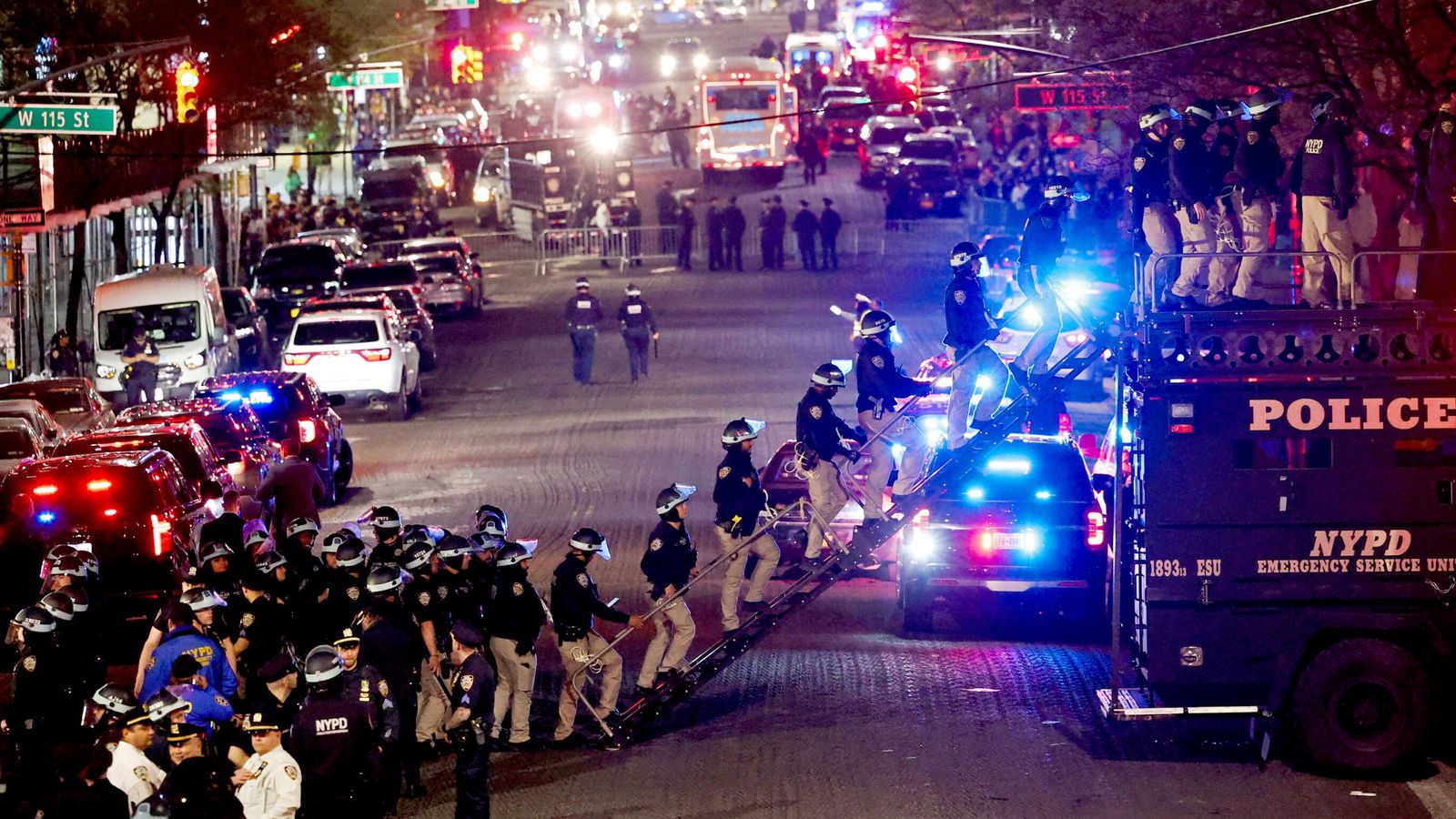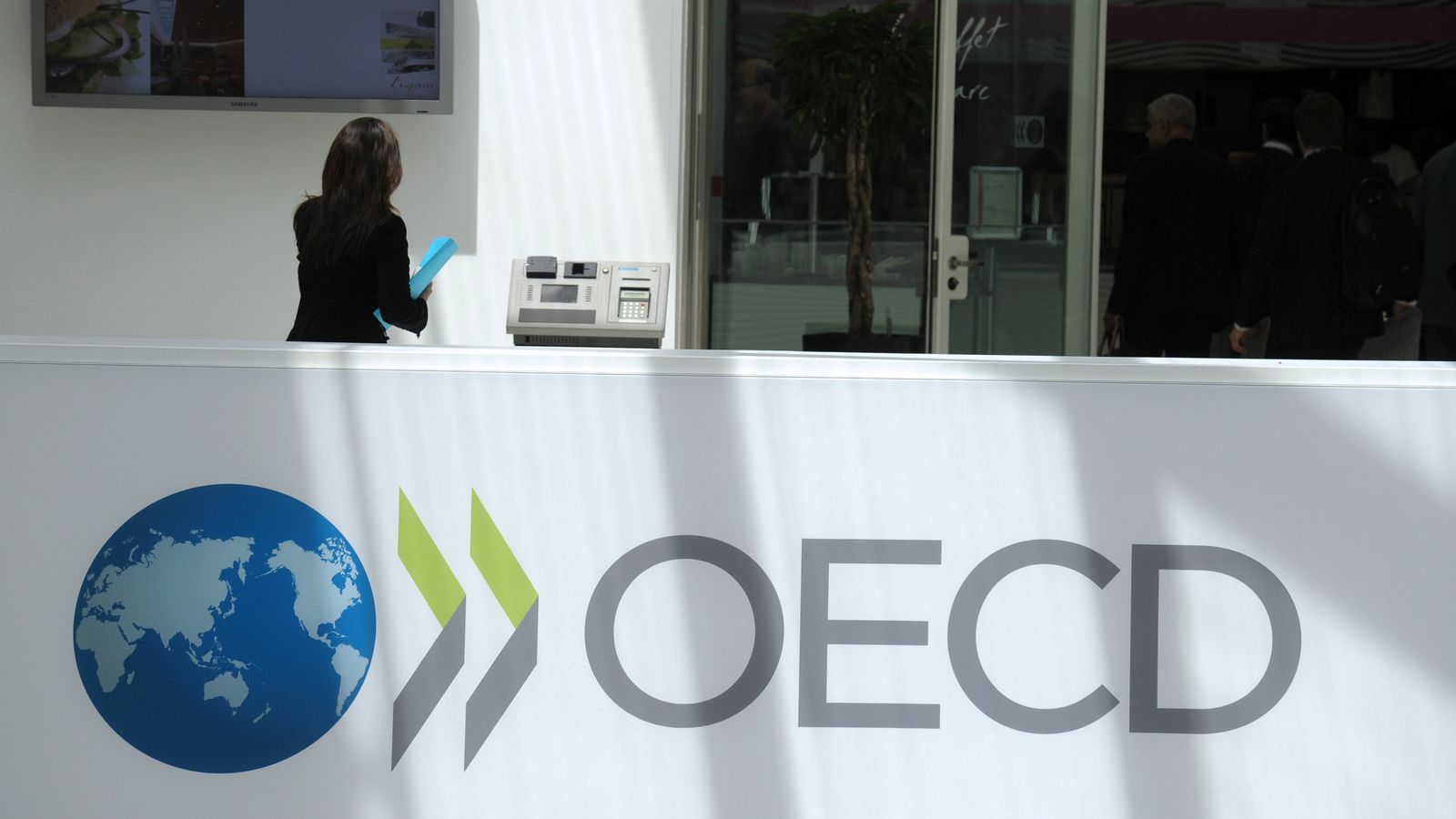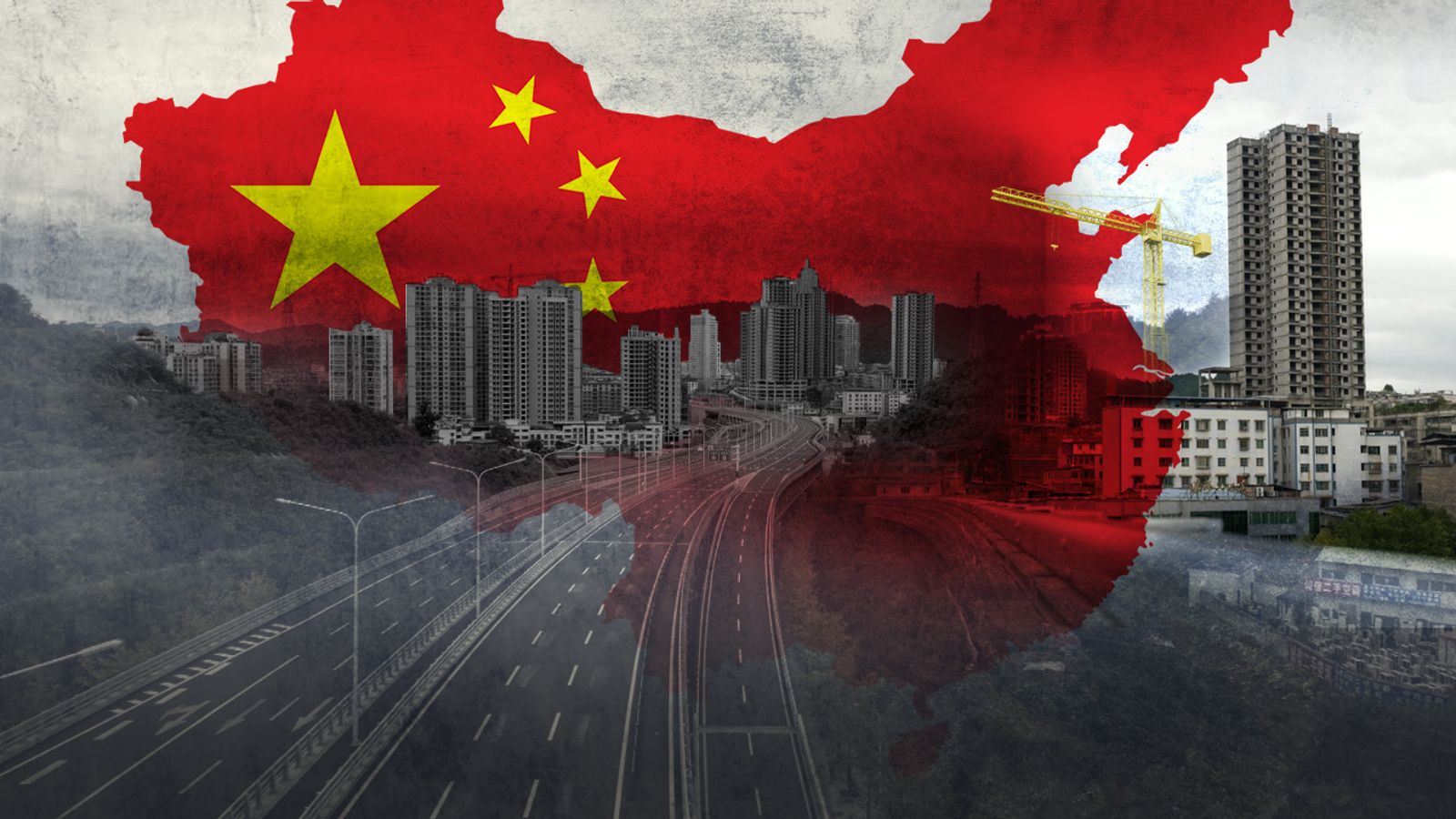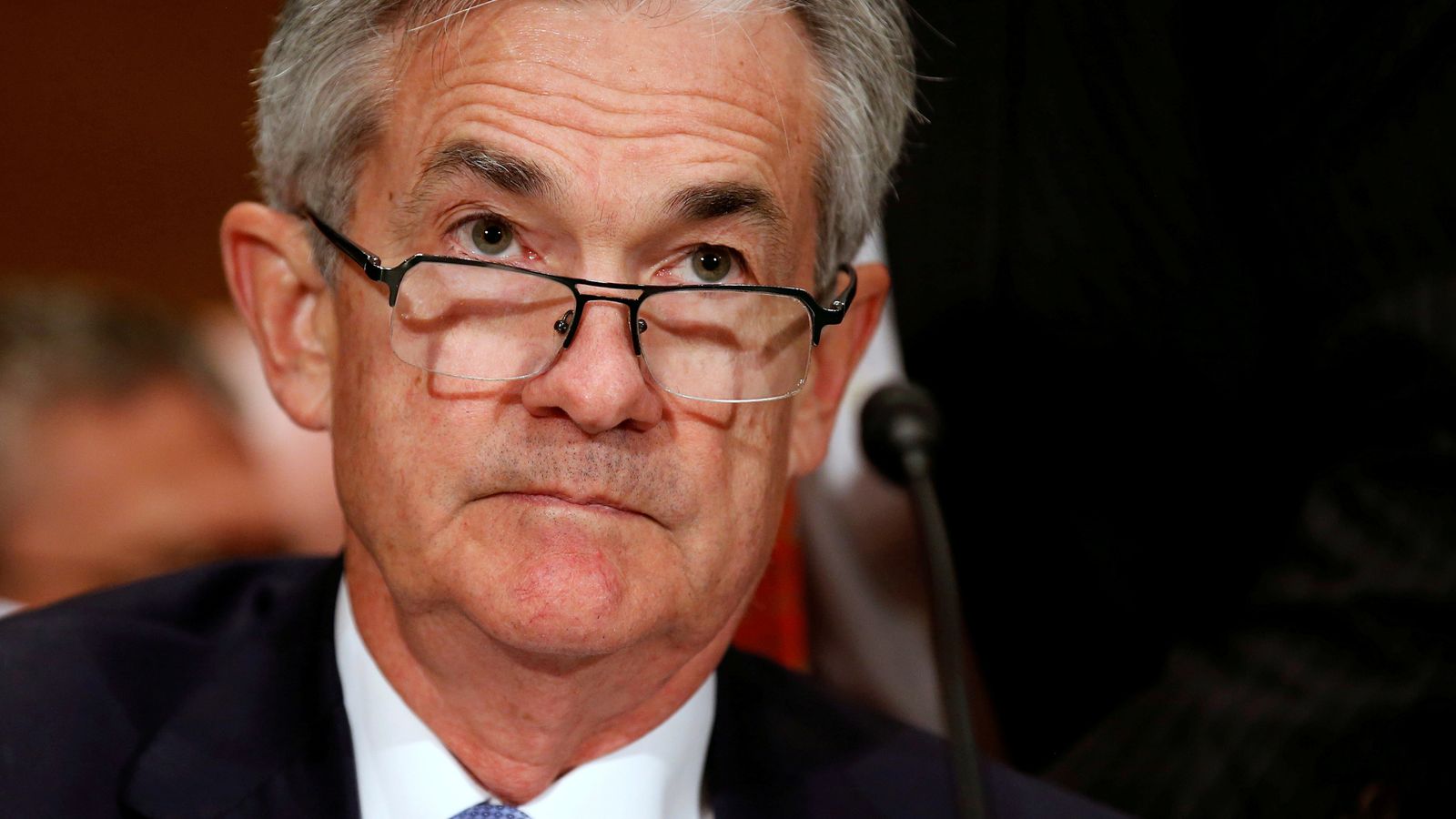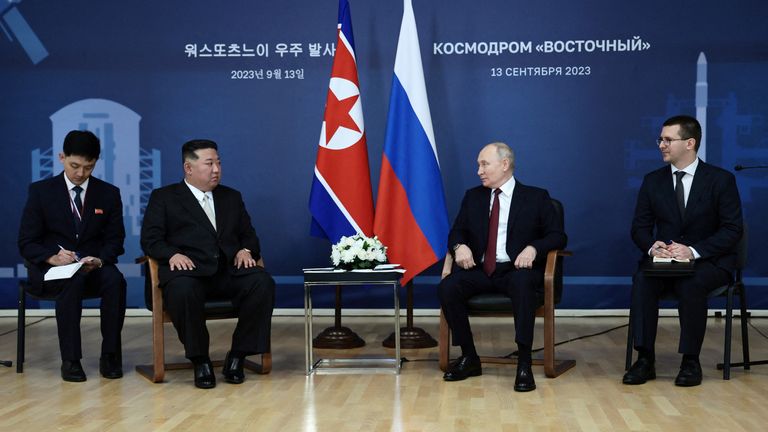
President Putin’s engagement with Iran and North Korea to secure ammunition has been ridiculed in the West.
Putin started the war with 20 million artillery shells – dwarfing that available to the West – and even those war stocks appear insufficient.
Similarly, the West is struggling to meet Ukraine‘s ammunition requirements.
Should Kyiv’s backers invest in dramatically larger stockpiles of weapons, and does this portend a new era of dramatically increased defence spending?
The nuclear deterrent is relied on for its ultimate security against global superpowers.
But only eight – 4% – of the world’s independent nation-states are nuclear powers; although NATO provides a protective umbrella for select non-nuclear states, 85% of states are not members.
Russia‘s success at holding NATO at bay while invading a non-nuclear neighbour highlights a grave shortfall in deterrence capabilities.
And, with rogue states like North Korea and Iran pursuing nuclear status, the former world security equilibrium is vulnerable, a fresh approach is required.
Although bullets and artillery shells will endure as the building blocks of military capability, the legacy of two brutal world wars led the West to invest in technology to enable greater precision, reducing collateral damage and casualties.
During World War Two, a free-fall bomb launched from RAF bombers would – on average – miss the target by four miles. Even a thousand bomber raids would not guarantee to hit the target.
Today, a Joint Strike Fighter delivers precision – four feet, not four miles – using smaller bombs, with less collateral damage and fewer casualties.
But, technology is expensive, so nations cannot afford significant weapon stockpiles. And, our defence industrial base is not configured to ramp up swiftly in times of war.
So, is Russia’s unprovoked aggression a wake-up call and is it time to spend more money on defence?
Membership of NATO is the UK’s ultimate security. We already meet the NATO obligation of spending 2% of GDP on defence – increasing this further risks subsidising our European colleagues.
Instead, we should be spending smarter, providing more cost-effective capability, perhaps even within a new defence paradigm.
Russia’s threat to Europe has been diminished – its military has been decimated by Ukraine and will take a decade to recover; however, a new vulnerability has been exposed.
Click to subscribe to the Sky News Daily wherever you get your podcasts
Although NATO might provide the UK with national security, our national interests will be increasingly vulnerable, and history suggests that simply battening down the hatches does not make the problem go away.
The answer? The basic need for ships, tanks and aircraft will endure, but the UK is no longer big enough to “do it all alone”.
Our protection lies in alliances, and that means making difficult choices about priorities.
In an uncertain world, the UK must be flexible, adaptable, and innovative – all qualities that Ukraine has exploited in its war with Russia.
That needs to be baked into our national defence DNA – currently, it is not.
The UK does not share Russia’s evident appetite for casualties, so as an island nation, our contribution needs to be through technology, enabling precision strikes and the spectrum of military capability that has served Ukraine so well.
Russia has an impressive arsenal of equipment but has failed to translate that into battlefield capability.
Operational training is a vital component of credible military capability.
But it is increasingly difficult to conduct realistic live operational training – peacetime safety constraints combined with the huge costs limit the benefits
Consequently, the military conducts an increasing amount of high-end and dynamic training in simulators, but single-service parochialism continues to hinder the development of a pan-defence virtual training eco-system – plug and play – to enable both national and international cost-effective operational training. This is vital for effective and credible military alliances.
Further, the Ukrainian experience of modifying drones overnight to address Russian capabilities highlights the importance of innovation – not just in the lab, but also on the battlefield.
The single services continue to exploit technology, but in parochial stovepipes, and not aligned to national/government initiatives.
But, in a political landscape dominated by a cost-of-living crisis, a crumbling NHS and a looming general election, will anything change?
Although Russia might have been neutered – at least for a decade – rogue nations globally will have been empowered by Russia’s experience.
And, terrorist organisations will have watched the Ukrainian “underdog” prevail against a Russian superpower by exploiting technology.
Weaponising drones has huge potential to cause disruption – and carnage – in our open society.
The West might be ridiculing President Putin for his engagement with North Korea in a desperate search for weapons, but we face the same strategic challenge – at least Putin has a plan.

